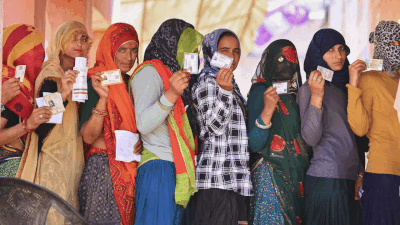The National Bank for Agriculture and Rural Development (NABARD) has cast a promising outlook for Bihar’s economic landscape, projecting a staggering credit potential of Rs 2,43,093 crore for the fiscal year 2024-25. This ambitious estimation reflects NABARD’s commitment to fostering sustainable growth and development in the state.
The projection is meticulously crafted, drawing insights from the Reserve Bank of India’s priority sector-based directives, alongside aligning with both central and state government policies geared towards bolstering agriculture and rural development. The unveiling of the State Focus Paper 2024-25 by Development Commissioner Chaitanya Prasad during NABARD’s recent credit seminar underscores a strategic roadmap for channeling credit flows across all 38 districts of Bihar.
In his address, Prasad emphasized the imperative of tailored credit planning for various sub-sectors within agriculture. He underscored the pivotal role of credit in propelling economic expansion and facilitating employment generation across the state. Chief General Manager of NABARD, Sunil Kumar, echoed Prasad’s sentiments, highlighting Bihar’s CD (Credit-Deposit) ratio, which at 53.01%, positions the state among those with the lowest CD ratio. Alarmingly, 28 out of Bihar’s 38 districts are categorized as credit-deficient, signifying a pressing need for enhanced credit accessibility, particularly in regions where per capita credit availability falls below Rs 6000.
Kumar called upon banking institutions to uphold their commitment in realizing the targets outlined in the State Focus Paper. Emphasizing the significance of credit infusion in agriculture, allied sectors, MSMEs, and other priority segments, he stressed the pivotal role of financial institutions in driving inclusive growth across Bihar.
Principal Secretary of Finance, Arvind Kumar Chaudhary, underscored the positive trajectory of Bihar’s CD ratio over the years. However, he voiced apprehensions regarding the limited coverage of Kisan Credit Cards, which currently extend to only 25% of land holdings in the state. This revelation underscores the need for concerted efforts to expand financial inclusivity, ensuring that the benefits of credit reach the grassroots level, thereby empowering farmers and rural entrepreneurs.
The forecasted surge in credit potential heralds a new dawn for Bihar’s economic resurgence. NABARD’s proactive stance, coupled with collaborative efforts from governmental bodies and financial institutions, paves the way for inclusive development and prosperity across the state. As Bihar gears up to harness its agricultural prowess and foster rural entrepreneurship, the envisioned credit influx serves as a catalyst for unlocking the untapped potential inherent within the heartland of India.












